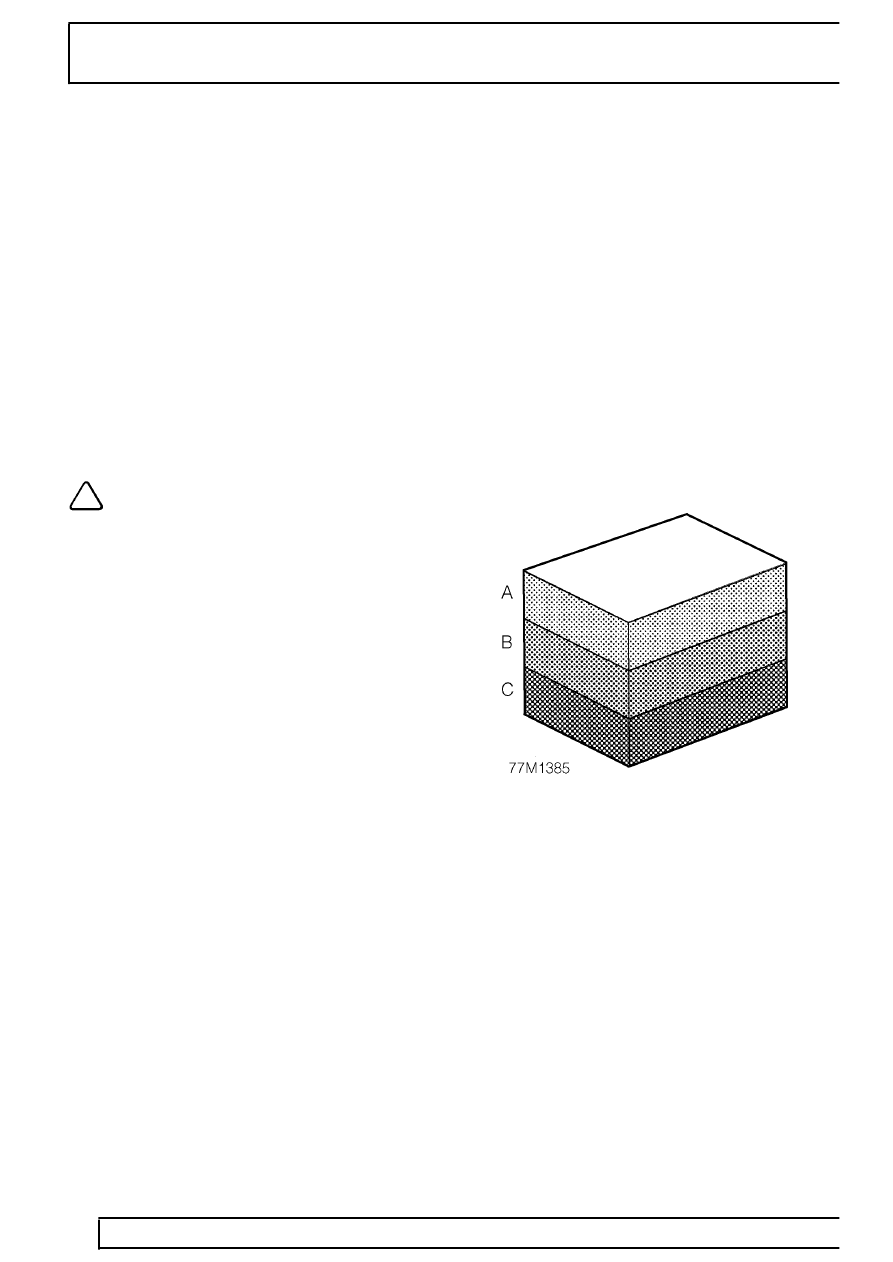Range Rover P38

77
PANEL REPAIRS
NEW RANGE ROVER
2
PAINT
Clinch Panels (eg Door skins etc.)
1. Abrade primer on new and existing panel joint
faces, and clean using a solvent wipe.
2. Apply metal-to-metal adhesive where applicable.
3. Where joints are to be spot welded, apply
suitable weld-through, zinc rich primer to weld
areas.
4. Where joints are to be MIG, arc or gas welded,
apply zinc rich primer in adjacent areas but
leave the welded area untreated.
5. To retain the panel whilst clinching the flanges,
tack spot weld or plug weld as appropriate.
6. Clean the panel with a solvent wipe.
7. Treat bare metal areas with a suitable etch
phosphate process.
8. Re-prime affected areas as necessary as for
rectifying transit damage. See this section.
NOTE: Replacement doors, bonnets and
tailgates must be treated with a suitable
seam sealer on clinched seams, following
the primer coat.
Paint Refinishing
1. Seal all accessible exterior and interior seams
with an approved seam sealer. Certain joints
such as sill lower flange seams must be left
unsealed.
2. Apply a suitable anti-chip primer where
specified.
3. Apply a two-pack paint refinishing system.
4. Repair any damage to underbody sealers either
at this stage or before paint operations.
Paint Repairs
Before carrying out paintwork repairs, the vehicle
must be thoroughly cleaned using either a steam
cleaner or high-pressure washer.
Wash locally repaired areas using a mild
water-mixable detergent and wipe them clean with
solvent, immediately prior to paint application.
Abrade damaged paintwork where bare metal has
been exposed until the metal is clean and extends
beyond the area of immediate damage. Treat the bare
metal with an etch phosphate to remove all traces of
rust and provide a key for new paint coats. Re-treat
the affected area using either a separate acid-etch
primer and two-pack surfacer or an integrated etch
primer/filler, and follow with a two-pack paint system.
Those surfaces not receiving paint must be treated
with a cavity wax following paint operations.
A. Two-pack top coat
B. Two-pack primer filler and etch primer
C. Etch phosphate
